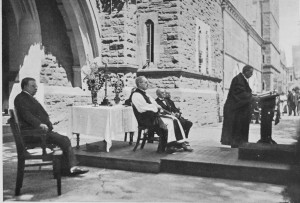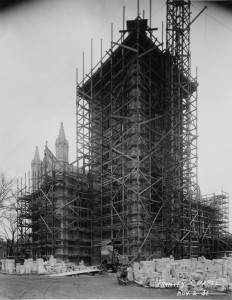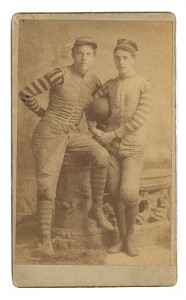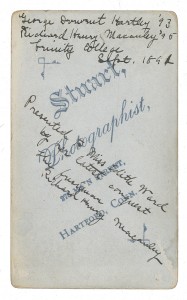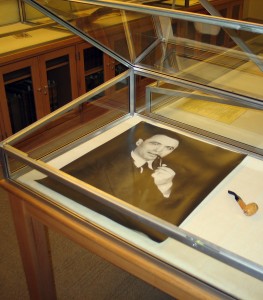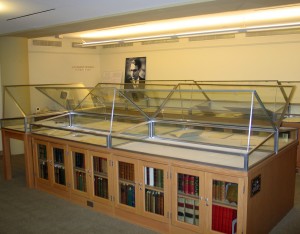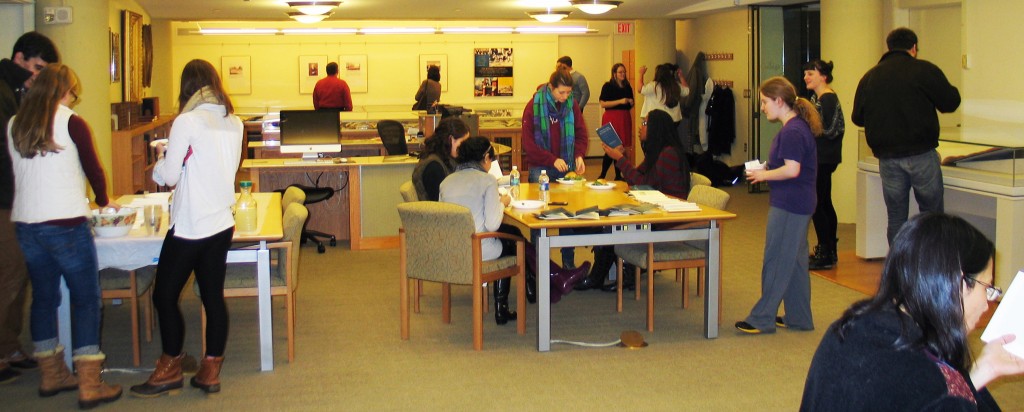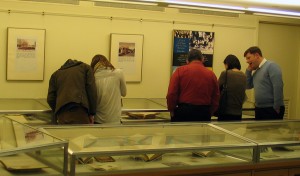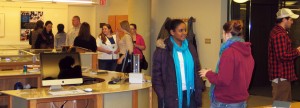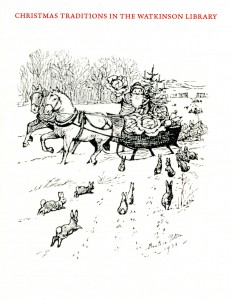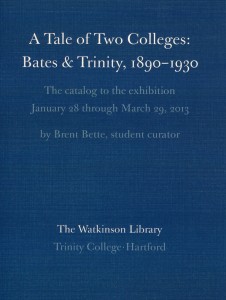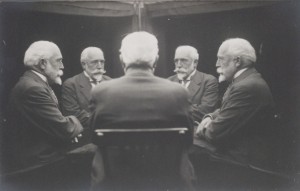 George Watson Cole (1850-1939), the first librarian of the Huntington Library, was a pioneer of modern bibliography who set a standard few have matched with the catalogs of the collections of Americana and English Literature assembled by E. Dwight Church.
George Watson Cole (1850-1939), the first librarian of the Huntington Library, was a pioneer of modern bibliography who set a standard few have matched with the catalogs of the collections of Americana and English Literature assembled by E. Dwight Church.
Cole was awarded an honorary Doctor of Humane Letters from Trinity in 1920 “in recognition of his work in the field of Bibliography.” It is likely this honor which led him to give his collection of some 10,000 postcards and miscellaneous ephemera related to Europe, most of which dates prior to 1915. His Americana postcards (some 25,000) and his papers are at the American Antiquarian Society.
 Volunteer Lisa Lew is creating an inventory of these postcards, which show the churches, monuments, city views, art galleries, market squares, harbors, theaters, cemeteries, municipal buildings and neighborhoods of Europe as they were before the ravages of both World Wars. There are also postcards of soldiers, portraits of ruling families, flags, coats-of-arms, coins, ships, bridges, beaches, vehicles (carriages, automobiles, planes, trains, fire engines, etc.), farms, parks, sports events, gardens, fountains, and costumes. It is an amazing collection, and we hope to have the inventory online soon, and at some point, we may digitize it all.
Volunteer Lisa Lew is creating an inventory of these postcards, which show the churches, monuments, city views, art galleries, market squares, harbors, theaters, cemeteries, municipal buildings and neighborhoods of Europe as they were before the ravages of both World Wars. There are also postcards of soldiers, portraits of ruling families, flags, coats-of-arms, coins, ships, bridges, beaches, vehicles (carriages, automobiles, planes, trains, fire engines, etc.), farms, parks, sports events, gardens, fountains, and costumes. It is an amazing collection, and we hope to have the inventory online soon, and at some point, we may digitize it all.
Lisa’s job has been made much easier because Cole was a librarian, and ordered the collection upon strict and detailed guidelines. Indeed, he wrote a pamphlet on the subject in 1935, entitled Postcards: The World in Miniature. A Plan for their Systematic Arrangement.

